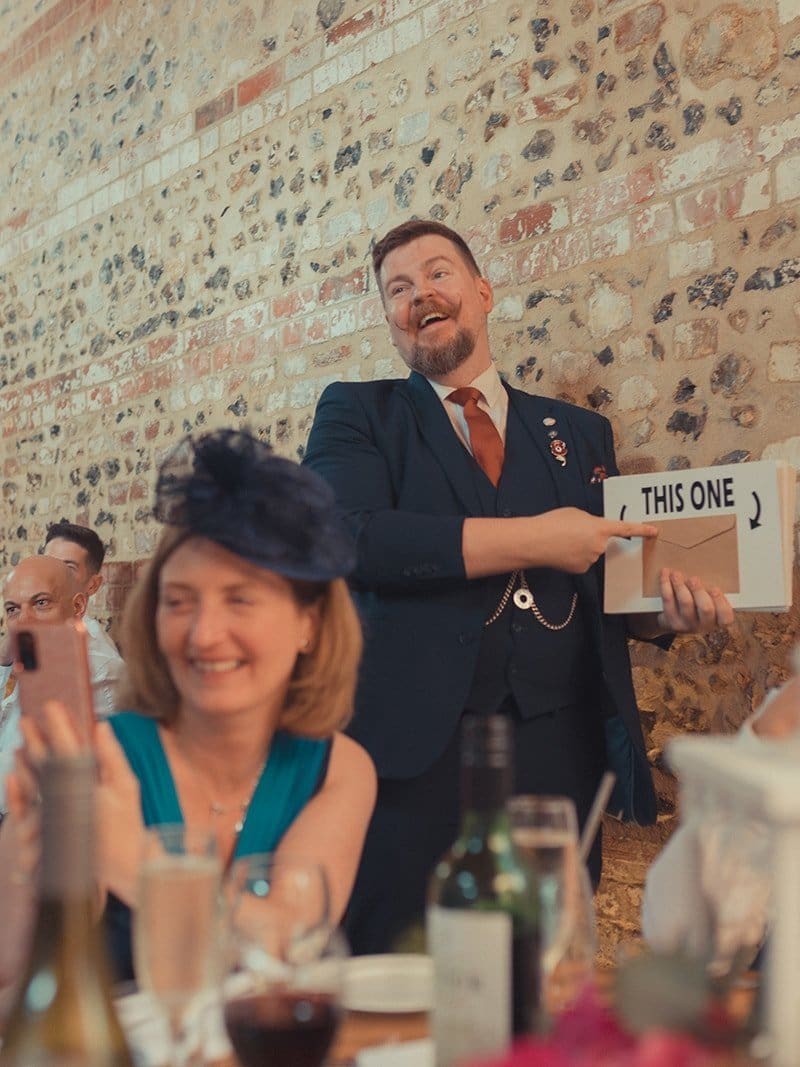Why every celebration needs a director
Imagine this:
The big day has arrived.
Your guests take their seats.
The music begins.
There’s a hush across the room as someone walks down the aisle, and for a moment — however brief — time stands still.
That, my dear reader, is not just a wedding ceremony. That is theatre.
A wedding, in many ways, is a live performance. It has acts, transitions, music cues, emotional arcs, and a very real audience. But unlike the West End, there’s no dress rehearsal. No encore. One take only.
And behind every seamless performance? A quiet figure is directing it all.
Let me explain.
Act I: Setting the scene
The day begins the moment your guests arrive — long before the vows.
Whether they’re greeted by soft string music, the aroma of fresh blooms, or a glass of fizz and a smile, they’re stepping into your world. And like any good production, the atmosphere must be just right.
A captivating opening sets expectation. It draws people in. It says, “You’re part of something special today.”
Whether it’s an elegant welcome, a charming toast, or a note of mystery — this first impression shapes the tone of the entire day.
Act II: The story unfolds
Ceremony complete, confetti tossed, the real magic begins: the flow of your day.
This is where timing becomes everything. You don’t want your guests left wondering what’s next or drifting aimlessly between bar and bathroom. You want rhythm — a natural sense of progression from one scene to the next.
The best weddings don’t rush, but they don’t dawdle either. They glide, like a swan on a calm, crystal-clear lake.
I often remember the 30/5 Rule: things take 30% longer than you expect, and it takes guests 5 minutes longer to move anywhere. That’s not pessimism — it’s practical magic. Build breathing space into your day, and the whole thing will feel calm, unhurried, and effortless.
Well… seemingly effortless.
Act III: The finale that lingers
Many weddings start strong, only to taper off into confusion after dinner. But your final act matters just as much as your first.
Think of your exit — your last dance, a final toast, even a cheeky surprise. The closing moments are what linger. They’re the last notes of the song, the final flourish of the wand.
Whatever you choose, let it be intentional. End as you began: with purpose and a touch of panache.
Every performance needs a director
Here’s the truth: the finest performances don’t happen by accident. And while you and your beloved are the stars of the show, every great production needs a director — someone who knows the script, keeps the cues running smoothly, and ensures no one misses their mark.
That’s what a professional host does. That’s what I do.
I’m not there to steal the spotlight — I’m there to make sure yours shines exactly when it should.
From seamless transitions to subtle guest engagement, from energising the room before speeches to making sure the band doesn’t kick in too early, the role of the host is like that of the conductor — invisible until vital.

Why is this important?
A wedding isn’t just a gathering. It’s a once-in-a-lifetime production starring you, surrounded by those you love, and performed with no dress rehearsal.
So treat it with the care of great theatre. Let the music rise. Let the transitions glide. Let the final curtain fall with joy, not chaos.
And above all, let it be a performance that your guests will talk about not because of its size or sparkle, but because of how it felt.
Effortless. Elegant. Enchanting.
Just as all great theatre — and all great weddings — should be.
